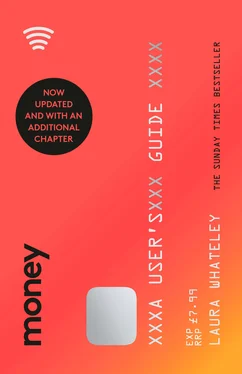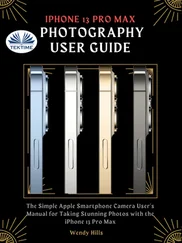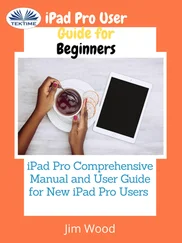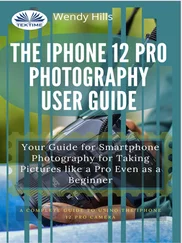First-time buyers will particularly benefit from using an independent mortgage broker or mortgage adviser who can help you wade through the different mortgage products that are out there. Brokers can also hurry along a lender and keep things progressing smoothly, filling out all application forms for you. Some brokers charge fees of from £300 to several thousand, others get commission from banks they match up to borrowers, either instead of or as well as a fee.
Broker London & Country does not charge a fee and promises that, though it gets commission, you do not get any worse a mortgage deal than you would if you went to the bank directly.
Do not be bullied into using an estate agent’s preferred adviser. You are under absolutely no obligation to meet their ‘in-house broker’, and it is illegal for estate agents to suggest that the price of the house you want to buy will go up unless you do.A word-of-mouth recommendation is often best, or you can search the website unbiased.co.ukfor regulated advisers.
Brokers will try to recommend add-on products while arranging your mortgage – life insurance for example. You will find a better deal by searching elsewhere, so don’t feel pressured by any hard sell (see chapter 9for more on this).

Choosing a mortgage
What’s actually in a mortgage?
A mortgage is likely to be your biggest financial outlay for the next twenty to thirty years. Choose wisely and you save thousands of pounds. There are a lot of mortgages to choose from, however, so it’s not easy. A broker will help you navigate the market, but first understand what you are signing up for yourself.
How much a mortgage will cost you up front, when you first get accepted for one, and from month to month for the next few years, depends on what that mortgage ‘product’ is made up of and the length of its term. Most are a mix of capital repayment, interest, and arrangement fees. These fees are significant, sometimes several thousand pounds.
The ‘term’ is how long a period you are given to pay back your mortgage. Many are twenty-five years, though the first forty-year mortgages have started to appear. You can lower the amount you pay month on month by opting for a longer term, but longer terms accrue more interest over time. It is a balancing act.
Similarly a mortgage with the cheapest interest rate is not always the cheapest deal over the longer term. You need to work out whether lower arrangement fees mean that you may be better off with a slightly higher interest rate, or vice versa. Banks are clever at making an offer look more attractive with low advertised rates but ultra-high arrangement fees.
Also look out for flexibility. Can you overpay your mortgage without being charged fees if you expect a bumper pay rise in the future? Can you take any break from mortgage payments without penalty if, for example, you know there’s a period when you will see a dip in earnings?
Should you get a fixed-rate or a tracker mortgage?
• BUT FIRST, WHAT IS THE BASE RATE?
The base rate is the national interest rate set by the Bank of England, and it is to the base rate that high-street banks and building societies peg their mortgage rates (as well as their savings rates, see chapter 5).
Following the Crash, the base rate was cut to a historic low of just 0.5 per cent, where it stayed until 2016, when it fell even further to 0.25 per cent. In March 2020 it was cut to 0.1 per cent. There is even talk of negative interest rates to help with our current economic crisis. Low interest rates can help to revive the economy, they are good for businesses – borrowing is cheaper – and should make citizens spend rather than save. Young first-time buyers have never known anything other than cheap interest rates on mortgages, but it may not always be this way. In 1990, the base rate was nearly 15 per cent, in 1980 it was 17 per cent.
Variable rates, pros and cons
When choosing a mortgage one of the biggest decisions is whether to get a variable rate, a tracker-rate mortgage or a fixed-rate mortgage.
A variable rate is fairly self-explanatory. The mortgage lender sets the price of its variable rate and may at any point raise it or lower it; variable rates will rise when the base rate rises, but banks may set them as they like. All lenders will have a ‘standard variable rate’ (SVR), which is their default product that you will revert to whenever the special deal you might sign up for, say a two-year tracker, ends.
The SVR is usually more expensive than the best mortgage deals on the market, so it pays not to sit on it for any length of time, though many people do.Research by mortgage broker Dynamo suggested that a third of people whose mortgage deal expired in 2017 spent forty-two days on the SVR, which cost an average of £371 more than they needed to be paying, in ‘procrastination penalty’.
A tracker rate is a variable-rate mortgage, but one that is actually pegged to the base rate. So for example you might have a tracker-rate mortgage of 1.99 per cent, which would work out at an interest rate of 2.49 per cent when the base rate is at 0.5 per cent, and rise to 2.99 per cent if the base rate rose to 1 per cent.
The cost of your mortgage rises proportionally with the base rate. You can sign up to a tracker with various different lengths: a lifetime tracker runs for the full term of your mortgage, say twenty-five years, or you could have a two-, three-, five- or ten-year tracker.
Fixed rates pros and cons
Fixed rates do not alter with the base rate. You lock into a specific rate for a set period – two, three or five years normally, but increasingly ten-year fixed rates have come onto the market. Whether you go for a variable or a fixed rate comes down to how much you want to bet on base rates rising or falling. Fixed rates are best for people who want the certainty of knowing exactly how much they must pay month by month for their mortgage for the next few years, but they may be slightly more expensive. You need to make a clear-eyed decision, because you will pay high exit fees to get out of your deal, whether it is fixed or tracker: as much as 5 per cent of your mortgage in what is known as an early repayment charge (ERC).
You may also be charged an ERC for paying off a chunk of your mortgage at once, for example, if/when you win the lottery. Some deals let you overpay a certain percentage a year if you can afford to, but there is a limit.
When weighing up your options, consider that every time you move deal you will probably have to pay arrangement fees. If you are signing up for an inexpensive-seeming two-year deal, factor in that you will have to soon pay out arrangement fees when it comes to an end and you want a new rate.
On the other hand the downside of signing up for a deal that is very long, say a ten-year fix, is that you may struggle to transfer it to a new house if you intend to move. Some mortgage deals are ‘portable’, but if your circumstances have changed since you took it out, or your bank does not like the look of your new place, you may struggle.
Watch out for any small print that allows a bank to put up its tracker rates even when the base rate does not rise. Some have a ‘collar’ that stops your rate falling too low if the base rate falls below a certain minimum.
Читать дальше













